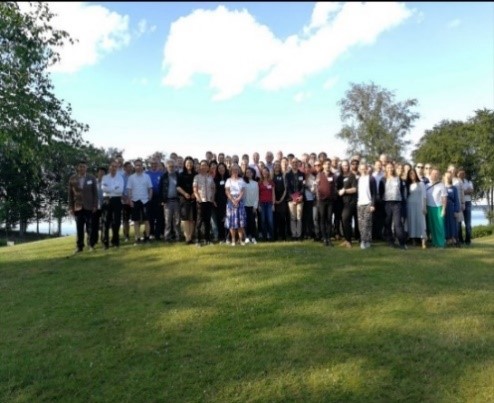Highlights 2019

CeMiSt received additional funding from DNRF and organized its first international conference “Microbial Secondary Metabolites in Microbiomes” in June 2019. The 2-day conference was very successful with 75 researchers from Europe and the US attending. In excellent talks and posters, the participants presented and discussed approaches and methods to study microbial secondary metabolites and their potential role in microorganisms and microbial consortia. The conference venue, Konventum, and wonderful summer weather facilitated discussions and social interactions.
CeMiSt was invited to co-organize two other conferences: The Danish Microbiological Society (DMS) symposium in March and the NNF Copenhagen Bioscience Conference “Natural Products, Discovery, Biosynthesis and Application” conference in May. CeMiSt members presented talks and posters at many international meetings and at a symposium organized by DTU Bioengineering.
The Otto Mønsted Foundation and Nationalbankens gæsteboliger supported a 3-months research visit by Professor Roberto Kolter from Harvard Medical School. He is a world-renown microbiologist with expertise in microbial communities, and engaged in a series of very fruitfull scientific discussions with CeMiSt. He gave a series of talks in other fora, including the Bloom Festival. Roberto Kolter facilitated that CeMiSt reproduced the photo exhibition ‘World in a Drop’ first displayed at the Harvard Museum of Natural History. The excellent photos of microorganisms are now posted in building 221 at DTU where CeMiSt is hosted.
CeMiSt grew with the hiring of an associate professor, two postdocs, four PhD students and two research assistants. Articles based on CeMiSt work were published in top-tier international journals, including Natural Product Reports, Journal of Molecular Biology and Molecular Microbiology.
CeMiSt held its annual retreat late October 2019 focusing on the status of science in the center and a brainstorming session on how to address the research questions driving the activities in the center.
CeMiSt succeeded in attracting external funding notably an infrastructure grant of 13.7 Mio DKK from the Novo Nordisk Foundation to Lone Gram and co-PIs. This grant will allow CeMiSt and DTU Bioengineering to build a forefront platform on imaging microbial interactions and the production of secondary metabolites in spatial and temporal contexts. Also, NNF granted funding for work on microbial interactions in the soil and rhizosphere to Professors Ákos Kovács and Jens Frisvad.